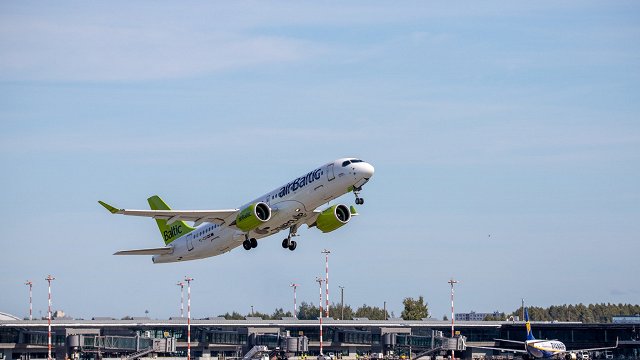However, the Union of Local Governments of Latvia is not satisfied with this, saying that a central government decision on the establishment of a mandatory municipal police force should be followed by central government funding, reports Latvian Radio.
Several municipalities of Latgale have admitted that currently the guidelines developed by the Ministry of the Interior for the creation and operation of the municipal police are not enforceable. Due to different financial circumstances, the law will be able to be implemented in only a 'formal' manner in many places, which will not necessarily involve seeing large numbers of officers on patrol.
Rēzekne is currently the only one of Latvia's largest cities that does not have its own municipal police. Nine years ago, the city council made a decision to liquidate the municipal police, citing its inefficient work. More than 20 people lost their jobs as a result.
Taking into account the mandatory requirement included in the new Law on Local Governments for all municipalities to establish a municipal police from January 1 next year, on September 21 the Rēzekne City Council plans to consider the issue of re-establishing a municipal police force in the city:
"As soon as we approve the regulations, a competition for the [job of] head of the municipal police will also be announced," Deputy Chairman of the Rēzekne City Council, Aleksejs Stecs said, adding that currently their plan is to establish a three-person municipal police force to serve Rēzekne's 28,000 population. "Respectively, it is the chief, senior inspector and inspector."
The guidelines developed by the Ministry of the Interior stipulate that there should be at least 16 specialists in the municipal police, and the work should be organized around the clock.
"It's just a recommendation. In our case, it won't be [like that]. You understand that three people can't cover the work schedule 24/7. It will be from 8:00 a.m. to 5:00 p.m. We'll see as the work progresses. If any additional staff are needed, then probably we'll take it into account and expand the composition of our municipal police," Stecs said.
The planned budget for the Rēzekne municipal police for the next year is 83,500 thousand euros. "This is, of course, salary, repair of service premises and technical means, including uniforms, video cameras, megaphones and so on," the representative of the council clarified. Additional funding will be required for the special vehicle. "The approximate cost of the vehicle is 40,000 euros. One unit, because it is special transport," Stecs added.
The municipality has also made calculations of how much funding would be needed if the municipal police were formed in a larger composition: "Up to half a million, if 19 people are involved in the municipal police." Currently, Rēzekne municipality cannot afford it. "Of course, it would be desirable if each additional function were accompanied by money, especially [taking into account] the fiscal situation in Rēzekne at the moment. But it is what it is. The law must be followed, and that is what we plan to do," stated Stecs.
How much of all the duties of the municipal police provided by law will be able to be performed by the three-person Rēzekne municipal police, he could not say: "Of course, with it consisting of those people, we are unlikely to be able to take everything under our wing at once."
You have the right to get ready
Imants Zaķis, Deputy Director of the Sectoral Policy Department of the Ministry of the Interior, assesses the readiness of municipalities to fulfill the legal requirements for the establishment and operation of municipal police as quite good, although at the same time he admitted that there are problems, especially with staffing: "The guidelines are in legal acts and practical experience based on conclusions, the preferred model of the municipal police. This does not mean that there must necessarily be these 16 [employees]. The number of employees is chosen by the municipality, guided by their needs, what is there, and what are the available resources for ensuring public order, but the preferred model is that the municipal police would be able to provide work in 24/7 mode."
When asked about the possibilities of state support, Zaķis explained that since the adoption of the law, municipalities have had more than a year to prepare: "Since it is an autonomous function of the municipality, the autonomous function must be financed from the funds of the municipality."
The Union of Local Governments of Latvia opposes this wording. Vineta Reitere, its adviser on legal issues, pointed out that until now the creation of municipal police was voluntary:
"If this is a new, mandatory way of performing the function, then it is a norm in the Law on Local Governments on funding. If we shift the burden of ensuring public order practically entirely to local governments, this state support mechanism had to follow."
Reitere agreed that many municipalities will not be able to implement the guidelines currently developed by the Ministry of the Interior for ensuring the operation of the municipal police: "At the moment, taking into account the existing situation that no funding is provided at all, we have emphasized the recommended nature of the guidelines and emphasized the need to continue work in order to ensure state support in the implementation of the guidelines."
Currently, municipal police in Latgale have not yet been established in the districts of Augšdaugava, Līvāni, Varakļani and Rēzekne.
The district of Augšdaugava has admitted that without additional funding from the state, they will be able to provide only 1.5 jobs in the municipal police, while in Līvāni they plan to form the municipal police with two or three employees. Amendments to the law do provide for the possibility for municipalities to form a joint municipal police or to delegate all tasks of one municipal police to another municipality. For example, the municipality of Varakļani district will use the opportunity to form a joint municipal police with Madona district.



























